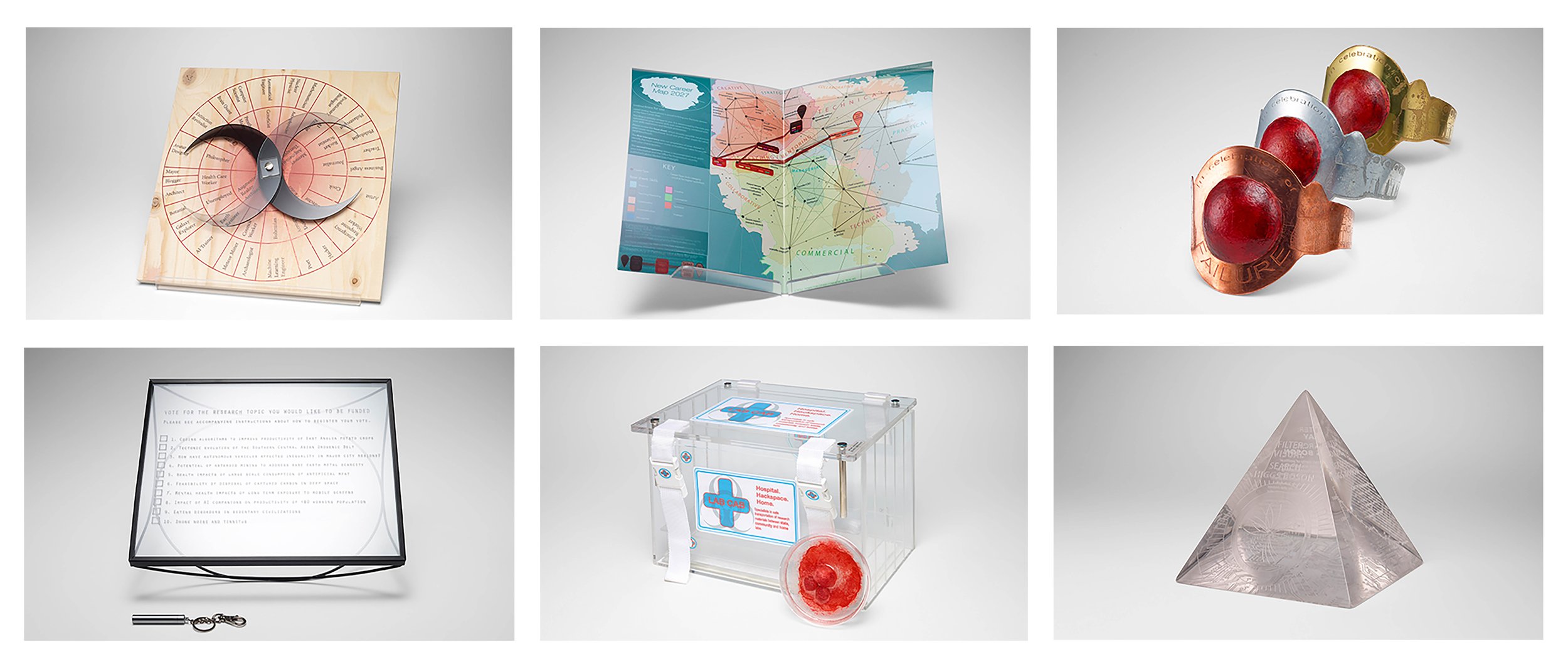RESEARCH CULTURE AT THE ROYAL SOCIETY (2017)
Young’s Translator (2031) (2017), SRG Bennett and Amy Starmar
Working with the glass artist Julie Light, I co-led a collaboration with the Royal Society to visualise the future of research culture. The Society had learnt that behaviours, incentives, norms, values and amenities in the research system are leading to poor outcomes. Yet everyone struggled to articulate what a good research culture might look like.
Julie and I led a team of artists to visualise this using a speculative design methodology. Whilst it is hard to talk about research culture in the abstract, you get a much stronger response if you present people with the following speculative artefacts from a futuristic museum:
The Public Ballot Voting Form from the year 2025 for deciding on how future research might be funded;
A Lab Cab Transport Container (2026) providing amateur and citizen scientists with access to biohazard material;
The Young’s Translator (2031): a futuristic device which translates the Higgs Boson particle discovered at CERN into different research languages*;
The New Career Map (2027) which set out a series of non-linear, non-hierarchical progression routes in the academic
The objects were curated as part of the 2035 Museum of Extraordinary Objects, hosted by the Royal Society. You can read about the making of the Museum here, the research culture programme here and the research report here.
* Why’s it called the Young’s Translator? The polymath Sir Thomas Young has been described as the Last Man Who Knew Everything. One of the research languages in the Young’s Translator is ‘lay’. The former British science minister William Waldegrave ran a science engagement competition in 1993, offering a bottle of vintage champagne to anyone who could explain the Higgs Boson particle to a lay-person. The winning entry, by David J Miller, is engraved into the side of the Young’s Translator.
Young’s Translator (2031) (2017), SRG Bennett and Amy Starmar
Young’s Translator (2031) (2017), SRG Bennett and Amy Starmar
Young’s Translator (2031) (2017), SRG Bennett and Amy Starmar
New Career Map (2027) (2017), Liv Bargman and SRG Bennett
Artefacts from the Museum of Extraordinary Objects; clockwise from top left: Interdisciplinary Collaboration Wheel (2028) (2017) Neus Torres Tamarit, Reggy Liu; New Career Map (2027) (2017), Liv Bargman and SRG Bennett; Memorial to Failure (2032) (2017) Helen Cawley, Priya Odedra, Josh Bourke; Young’s Translator (2031) (2017), SRG Bennett and Amy Starmar; Lab Cab Transport Container (2026) (2017), Julie Light; Public Ballot Voting Form (2025) (2017), Tere Chad





